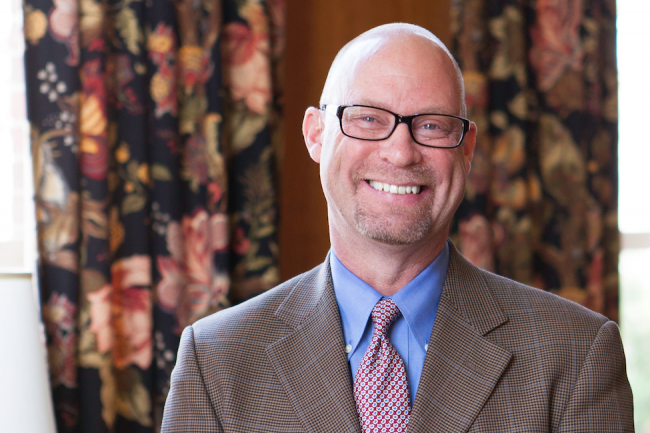From the President's Desk

23 March 2015
It has been a little over a week since returning from ACPA15. After catching up on some sleep, I’m at a place to reflect on my experience. Knowing that I would be transitioning into the President’s role, I had played out the various moments of convention in my head thinking that I would know what to anticipate and could be prepared. ACPA15 didn’t go as I expected and while some aspects of the convention were very challenging for me and other ACPA leaders, I’m glad it didn’t as my eyes have been opened in ways they were not previously.
No one could foresee that our closing speaker Laverne Cox would have to cancel her attendance at our convention. Even more improbable was Michael Sam, replacing Laverne on short notice, having to cancel two days before closing due to a health issue. I’m proud of the ACPA15 convention team who spent sleepless nights putting together an alternate closing that featured our own Stephen John Quaye and Jamie Washington. I want to publicly thank Stephen and Jamie for agreeing to speak and making arrangements to do so. Their messages were direct, powerful and necessary.
While dramatic, these are not the unexpected events that stick with me. What sticks with me every time I think of ACPA15 are the emotions I felt during the Equity and Inclusion Community Forum. The forum was an event for open dialogue regarding equity and inclusion in the association. Hearing the stories of members who have been marginalized in our association was jarring. At many points during this dialogue, my body was physically trembling from the cacophony of emotions roiling inside. At different times, and all at the same time, I felt shame, guilt, pain, sadness, empathy, anger, incompetence, and defensiveness. It was difficult to hear the painful stories of members who have been marginalized in the association that espouses social justice. And it is difficult to acknowledge that I have likely contributed to these painful experiences through my actions or inactions.
I’m proud that ACPA is a place where individuals can voice thoughts, feelings, and stories about their lived experiences. The stories were ones that ACPA leaders and all members needed to hear. The dialogue that was activated by our members who bravely shared their painful stories helped me realize the limits of my own cultural and intercultural competence. I have a lot of work to do. Our association has a lot of work to do.
While painful feelings were expressed during the Equity and Inclusion Forum, feelings of hope also were shared. Members professed hopefulness that through collaborative dialogue and problem solving, together we can make ACPA truly more inclusive. As Stephen and Jamie reminded us “we can all do better…and we must do better.”
Greater collaboration and openness is critical if we are to become more inclusive, and I recognize that I and other leaders in ACPA who hold positions of power and authority have the greatest obligation to listen, think and act. As leaders, we have greater opportunity and responsibility to create the change we want to see, and that change starts within each of us. During our closing, I made the following commitments:
- Continuing dialogue that provide voice to our members as well as pathways for collaborative problem solving
- Examining our own shortcomings as culturally competent leaders
- Partnering with allied organizations to create opportunities for coalition building and professional development
- Seeking opportunities to advocate for policies that best support our students and campuses, and
- Exploring structural barriers to full inclusion of our members
I don’t have all of the answers we need to achieve these commitments, but at our meeting held on March 13th the Governing Board began a process that will lead toward action. In lieu of a regular meeting, we used the time to process our individual feelings from our Tampa experience, to discuss and reflect on the messages that we heard from our members, and to build our collective consciousness and commitment to address the complex issues of equity, inclusion and social justice in ACPA and in our work at our institutions.
Governing Board members emphasized the importance of creating safe and brave spaces for continuing this important dialogue. These spaces have to be available all year long, and not just once a year at convention. This will require us to create more dialogue opportunities. We are examining ways to restructure the July Leadership Meeting with all association leaders to have these frank and honest conversations and identify viable solutions to increasing inclusion in ACPA.
The conversations must continue. The association leadership will continue them, and I invite you to share your thoughts and suggestions as a reply to this blog post or through other communication channels. Your ideas and advice will help inform our work and interactions in our roles as ACPA leaders. If you would prefer a one-on-one conversation, please email me at ghenning@nec.edu.
I know that we can continue to work individually and collectively towards greater and more authentic inclusion in ACPA.
Gavin Henning
ACPA President
